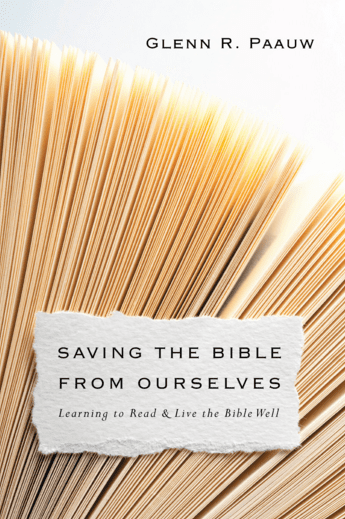This blog has given some concentrated attention to how we understand the Bible and, in particular, we’ve been examining an approach to the Bible Christian Smith calls “biblicism.” This sort of thing also came up yesterday in William Webb’s discussion of corporal punishment. Now we are moving to another scholar who asks aloud how to use the Bible in our world, and this time it is from a scholar from a completely different angle. His name is Richard Elliott Friedman and he has written a new book with Shawna Dolansky. The book is called The Bible Now.
 Friedman is a brilliant and engaging writer and a professor of Jewish Studies at the University of Georgia; Dolansky was one of Friedman’s students. The most important feature of this book is that it approaches the Bible, not from the lens of biblicism or orthodox Christian theology, but from the angle of a Jewish scholar and from the angle of the significance of the historical critical method for “using” the Bible today.
Friedman is a brilliant and engaging writer and a professor of Jewish Studies at the University of Georgia; Dolansky was one of Friedman’s students. The most important feature of this book is that it approaches the Bible, not from the lens of biblicism or orthodox Christian theology, but from the angle of a Jewish scholar and from the angle of the significance of the historical critical method for “using” the Bible today.
How do you describe the “method” of these scholars below? What steps do they take? Do you think it differs from Protestant or Liberal or Evangelical approaches to appropriating the Bible for today?
They observe, no matter what faith you have, the Bible is electricity and it must be handled with care. Which topics will they engage? Yes, you may have guessed: homosexuality, abortion, women’s status, capital punishment, and the earth. How’s that for some engaging issues. Friedman is known for even-handedness, and I hope you will join us for this series. Some people approach the Bible as divine and with final authority, while others from the angle of wisdom. Either way, this book will help.
Friedman and Dolansky begin by observing there are three kinds of literature in the Hebrew Bible: prose (story, narrative), poetry and laws.
We begin with homosexuality, and they open with the story/prose in Genesis 18 (Sodom and Gomorrah) and Judges 19 (Gibeah). Both texts are about sex, but it is not clear — the authors — that this is “men” with “men” but “people” with “people.” The Hebrew uses masculine nouns (anashim). And “brothers” may not be males but people in general. The term is used 22x in Genesis: 15x for males, 2x clearly for males and females. Thus, it might mean males and it might not mean males. [That’s Friedman’s view. My view is that it most likely does refer to males. Without textual warrant indicating mixed company, I’d suggest the term means males.] He sees the offering of daughters as typical Near Eastern bargaining, and not the offer of women (instead of men) for sex. Nor is the hospitality theory sufficient here. We don’t know, the authors say. The Gibeah story, in fact, has the males raping a woman (showing homosexuality is not the point). All the people are destroyed in Sodom, but that means women too … because all were involved. And, one more, why would the other cities be destroyed? Were they all male homosexuals? For these authors the text is about rape. They believe we should not use this text when discussing homosexuality.
The authors to poetry: 2 Sam 1:26: when Jonathan dies, David says: “Your love was more wondrous to me than love of women.” Are there reasons to see this poetic line about homosexuality? The authors: “Actually, there are none.”
Then to laws: “male homosexual acts are prohibited.” They quote Lev 18:22 and 20:13, and wonder aloud why women are not prohibited (lesbian acts of sex). They think standard explanations are not adequate and that it has to do with polygamy, which was an option for males with wealth. The Bible nowhere prohibits lesbian acts. There is something about male-to-male contact that is prohibited. Why?
Seed or command to multiply? They think no. Distinction among things — purity laws? They think no again. Immoral? No. The term is to’ebah, and that means “offensive.” This prohibition is found only the priestly codes, the latest of law codes. Is this about purity? No. They think it is difficult to know, but most probably visceral and cultural and not theoretical. Cultic prostitution? Again, no. Not enough evidence for cultic prostitution in the area.
They do seem to soften a bit on the seed idea above when they discuss how the family was ordered: what furthered seed was good; what didn’t was not good.
Their contention is that homosexuality was not understood then as it is now; it was not an identity factor. People weren’t “homosexuals” or “heterosexuals.” They were humans with sexual desires. They sketch laws and practices in the ancient world — Assyria, Egypt, Greece, etc — about homosexual acts. They contend it is not about homosexual orientation but the status of the persons involved: male citizens were not to have homosexual acts with other male citizens. Superior-inferior statuses were seen otherwise. It was about dominance and superior status; those who were penetrated were considered like women and not equal male citizens.
So they contend Lev 18 and 20 prohibit robbing another man of his status by feminizing him. The holiness codes treated all males as equal, so there was not superior/inferior set of laws. It has to do with the violation of a fellow citizen in Israel.
They also contend that to’ebah, the abomination, is relative. That is, the law prohibits male sexual homosexual acts but it does not make that law eternal and unchanging. [I think they are pressing this sense of to’ebah.] Thus, they argue as long as it is offensive it is prohibited.











